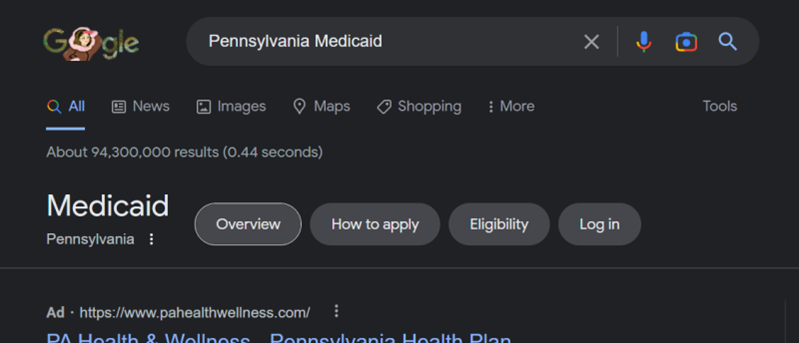MM Curator summary
The article below has been highlighted and summarized by our research team. It is provided here for member convenience as part of our Curator service.
[MM Curator Summary]: Yeah it’s a self-serving press release, but it is interesting to see progress on the decades long path to modularity.
Discover your Provider® solution streamlines enrollment, screening, and monitoring for Wyoming’s Medicaid providers
FORT LAUDERDALE, Fla., Jan. 3, 2023 /PRNewswire/ — HHS Technology Group, LLC™ (HTG) announced today the Wyoming Department of Health (WDH) received final certification from the Centers for Medicare & Medicaid Services (CMS) for its Provider Enrollment, Screening, and Monitoring (PRESM) system powered by HTG’s Discover your Provider® (DyP®) solution. DyP® offers an advanced online provider portal with electronic and self-service capabilities, such as provider enrollment and license verification, with proven success in improved operational efficiencies, added convenience, and simplified processes, resulting in increased cost savings and a better provider experience.
HHS Technology Group is a software and solutions company serving the needs of commercial enterprises and government agencies. HHS Tech Group delivers purpose-built, modular software products, solutions, custom development, and integration services for modernization and operation of systems that support a wide spectrum of business and government needs. For more information about HHS Technology Group, visit www.hhstechgroup.com. (PRNewsfoto/HHS Technology Group)
“We are pleased to collaborate with HHS Technology Group to launch the PRESM system,” said Jesse Springer, Medicaid Technology and Business Operations Section Manager, Wyoming Department of Health. “We believe we now have one of the fastest, if not the fastest, Medicaid provider enrollment and re-enrollment systems and processes in the nation.”
A cloud-based, holistic platform, DyP® serves as the system of record for all of Wyoming’s Medicaid, Kid Care CHIP, and WDH provider enrollments. HTG’s contract with Wyoming’s Division of Healthcare Financing includes the operation, maintenance, and enhancement of the PRESM system, which has been in production since April 2021. HTG’s call center also provides critical support and technical assistance to Wyoming Medicaid providers.
“For states to properly administer Medicaid programs that efficiently deliver high-quality medical services to vulnerable populations, it is critical to have clean, accurate, reliable provider data,” said Bradley White, CEO of HTG. “With the launch of PRESM, Wyoming now has an industry-leading solution to optimize all provider management processes, including screening, enrollment, and monitoring.”
In addition to facilitating and promoting greater provider participation, DyP® leverages a modular design for increased functionality and leading-edge technology to streamline once-seemingly cumbersome and time-consuming processes significantly. The significant value delivered by DyP® to states and providers includes:
- Reduced enrollment time for new providers from over one month to under five days.
- Significantly reduced state and contractor burden and time (approximately 2 FTEs) from the previous manual process for new applications, renewals, and licensing updates.
- A fully integrated pharmacy provider enrollment process with streamlined monitoring.
- A 100% electronic provider agreement process, including signatures.
Notably, DyP® is one of six certified Medicaid Management Information System (MMIS) provider solutions, and HTG is among the few companies to obtain certification for multiple modules, as evaluated and awarded by the National Association of State Procurement Officials NASPO) ValuePoint contracting arm. Most recently, HTG’s Recover your Liability® (RyL®) solution, which automates third-party liability functions and integrates with other MMIS modules, earned NASPO ValuePoint certification.
To learn more about HTG’s Discover your Provider® platform and its proven success, visit HHS Technology Group online.
About HHS Technology Group, LLC
HHS Technology Group (HTG) is a software and solutions company serving the needs of commercial enterprises and government agencies. HTG delivers modular software solutions, custom development, and integration services for the modernization and operation of systems supporting a broad spectrum of business and government needs. For more information about HHS Technology Group, visit www.hhstechgroup.com.
Media Contact:
Janet Mordecai
Amendola Communications (for HHS Technology Group)
jmordecai@acmarketingpr.com

Cision
View original content to download multimedia:https://www.prnewswire.com/news-releases/wyoming-receives-cms-certification-for-its-medicaid-provider-management-system-delivered-by-hhs-technology-group-301712112.html
SOURCE HHS Technology Group

